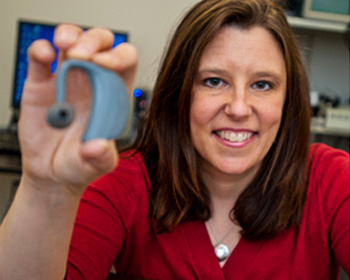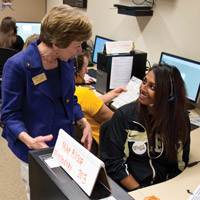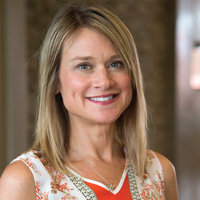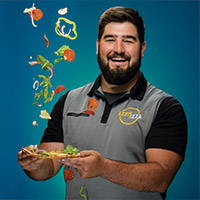
Jessica Huber, professor in the Department of Speech, Language, and Hearing Sciences, provides hearing enabling for people with Parkinson's with her SpeechVive device.
Photo provided
That's certainly true for Jessica Huber, professor in the Department of Speech, Language, and Hearing Sciences. Huber, who won the 2014 Outstanding Commercialization Award for Purdue University Faculty, has come a long way in the startup process.
Her invention, SpeechVive, is a behind-the-ear device that enables people with Parkinson's disease to speak more loudly and communicate more clearly. The device, which has been available for two years, is on the market in 18 states; nearly 100 speech pathologists have been trained to fit patients with the device.
Huber, who is also CTO for SpeechVive Inc., is pushing the product toward profitability.
"We're in the middle of raising our round B of funding," she says. "After this we project that SpeechVive will be self-sustaining, based on sales of devices." With this second influx of capital, the company is looking to widen the distribution network and increase market share, particularly in Veterans Affairs medical centers — and update the device so it can be set remotely.
"I think people think starting a business is easy, that managing the amount of work and time involved is easy," she says. "But it's not. And it takes years to build a company that's profitable." In the case of SpeechVive, Huber reckons it will be 11 years from initial idea to profitability.
"Which is fast compared to a drug or an implanted device — which require FDA approval," she says.
For fellow faculty entrepreneurs, Huber highly recommends Purdue's Entrepreneurial Leadership Academy at the Burton D. Morgan Center for Entrepreneurship. The sessions helped her learn the ins and outs of entrepreneurship, including networking, business planning and tech-transfer processes.











